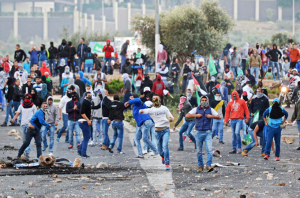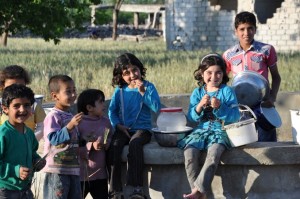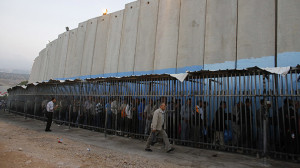By Max Bartels
Impunity Watch Reporter, The Middle East
Jerusalem, Israel
Israel is in the midst of passing legislation known as the “Jewish State” bill, a bill that would effectively enshrine Jewish law in the Basic law (Constitution) of the nation. This is significant for several reasons; first, the basic premise of the law puts Jewish law and Jewish rights before democracy. Jewish law would become the basis of the Israeli legal system, while it affirms the personal rights of all citizens, but according to the law communal rights are reserved only for Jewish citizens. The Arab minority in Israel, which accounts for about 20% of the population, would have rights as individuals but not national rights. The Arab minority is afraid that they will be framed as second-class citizens in a nation that is meant for Jews. The proposed laws effect has caused a great deal of controversy and it has come at a time where Arab-Israeli relations are the most strained they’ve been in sometime.

There are many who believe that for the Arab population who hold Israeli citizenship nothing significant will change. According to many Arab advocacy groups, for the most part Arabs have never had equal rights to Jewish Israeli citizens. The Arab population has always faced discrimination; the only practical effect, they claim is that the bill will now make it legal. Israelis who support the bill are mainly comprised of Israel’s right wing Likud Party. Prime Minister Netanyahu is a member of the Likud party; the right wing has pushed him for a nationalist bill for sometime. Palestinian leaders and other Arab leaders still refuse to recognize the connection between the Jewish people and the land of Israel, the Prime Minister has stressed this in many speeches given in support of the bill. Advocates of the bill say it is the right of the Jewish people to pass legislation in their own country.
Protests have been wide spread by both Arabs and Jews who don’t support the bill. Most protesters believe the bill is fueling an already raging fire. The U.S. State Department has urged Israel to uphold democratic principles. The European Union has also spoke out against the passage of the Jewish State bill. Tensions will continue to rise as the wait for the vote on the bill continues.
The Prime Minister’s Cabinet approved the bill by a vote of 14-6. The bill now has to pass through the Israeli Knesset, which is the legislative body of the Israeli government. However, the vote has been delayed in the Knesset due to the Prime Minister calling for early elections and the dissolving of the parliament. The vote on the bill will be delayed until a new parliament is elected.
For more information, please see:
Al Jazeera — “We are not Citizens with Equal Rights” — 3 December 2014
The Telegraph — What is the Jewish State Bill? — 27 November 2014
Eyewitness News — Hundreds Protest over “Jewish State Bill” — 2 December 2014



